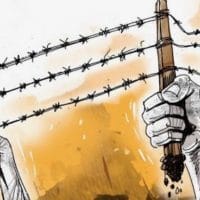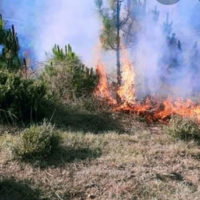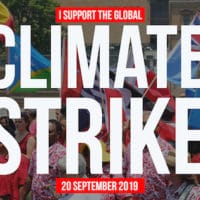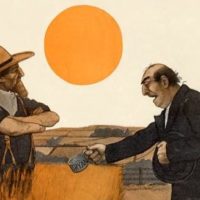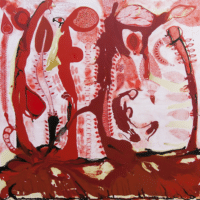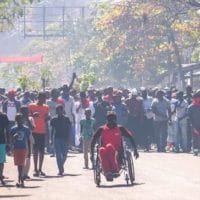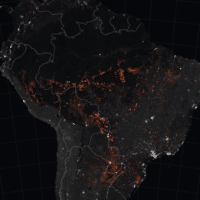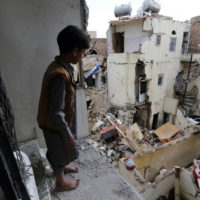-
Millions march against climate change, capitalism and war
Four million people participated in the global climate strike across every continent on Friday, many of them students who skipped school on that day. Demonstrations at more than 5,800 locations in 161 countries began in Australia and the Pacific, moved to Asia, Antarctica, Africa and Europe, and then to North and South America. This is the third such climate strike this year, following similar mass global demonstrations this past March and May, and the largest to date.
-
Late stage U.S. capitalism fosters death and despair, but can it foster class unity?
Self-determination is still an unknown concept to many despite the efforts of the movement for Black lives and related organizations.
-
Capitalism and climate change
The week from September 20 till September 27 has been designated as the week of the ‘Climate Strike’. It is an unprecedented event in its ambition to disrupt business as usual.
-
My voice is the gallows for all tyrants
More than seven million Kashmiris remain suffocated by the Indian government. The curfew that went into effect on 5 August is still in place. The media is not able to get into the state and offer a report of the situation. Telephone and internet services have been shut down.
-
Soviet Archaeology in Theory and Practice
A Review of Ancient Irrigation Systems of the Aral Sea Area: The History, Origin, and Development of Irrigated Agriculture by Boris V. Andrianov, and Soviet Archaeology: Schools, Trends, and History by Leo S. Klejn
-
Why Argentina’s elites are waging war against Milagro Sala
The leader of the Tupac Amaru Neighborhood Association is a symbol of the fight against the old order.
-
Music and film this time
The months ahead will show how many degree traces of the revolutionary spirit—exemplified by two recent events in Berlin—will somehow find their way into the Berlin and German political scenes.
-
Venezuela: Despite U.S. sanctions Maduro delivers house number 2.8 million
As a part of Great Housing Mission Venezuela, the national program guarantees citizens’ access to adequate housing.
-
Over 500 climate strikes planned in U.S. on September 20th; global climate strikes to take place in 117 countries
Activists of All Ages, Labor Groups, Faith Leaders, Businesses and More Join Youth-Led Climate Strikes in Intergenerational Demand for Climate Action
-
Money Politics before the New Deal with Jakob Feinig
Jakob Feinig, assistant professor of human development at Binghamton University, joins Money on the Left to discuss the history of political organizing and activism around money in the United States, from the pre-Revolutionary period to the New Deal era. Characterized alternately by periods of widespread “silencing” and mass mobilization, the history of money politics that […]
-
It’s time the UK had real democracy
Under the UK’s constitutional monarchy, we are subjects not citizens. Rewriting the constitution should be an urgent priority for a Labour government, argues Hilary Wainwright.
-
Evo Morales, providing leadership in times of adversity
While other South American leaders delayed operations to fight fires for days as flames spread across the Amazon, Bolivian President Evo Morales Ayma personally led efforts to confront the tragedy
-
We will see roots reaching out for each other
Last week, Agence France-Presse got its hands on a draft UN report called Special Report on the Ocean and Cyrosphere in a Changing Climate. This 900-page document is study of the oceans for the Intergovernmental Panel on Climate Change (IPCC), the UN body which won the Nobel Prize for Peace in 2007.
-
“Down with the Rebels Against the Bill of Sale!”: Guy Endore’s Radical Reimagining of Haiti and Revolution
The American occupation of Haiti lasted from 1915–34. The U.S. subjected Haitians to the hated forced labor system of the corvée, seized control over Haitian finance, and rewrote the Haitian Constitution at gunpoint, enabling foreign companies to acquire land in the country. The distorting and oppressive impacts of the U.S. occupation have been felt in Haitian society ever since.
-
Dossier no. 20: When you ill-treat the African people, i see you
The Industrial & Commercial Workers’ Union (ICU)—a trade union, rural peasant movement, and urban squatters’ movement—formed on the docks in Cape Town in 1919. Within a decade, the ICU had expanded across Southern Africa without regard for national borders and counted people from various African countries and the Caribbean in its leadership, as well as people who were Indian and mixed race. The largely forgotten history of the ICU is well worth recovering in a time of escalating chauvinism and xenophobia. Our Dossier #20 offers an introduction to this extraordinary popular movement.
-
Understanding the fires in South America
Extractivist governments are stoking destruction in the Amazon and beyond. International alliances and Indigenous technologies can help protect the biome and support its 30 million inhabitants.
-
The workplace democracy plan, explained (Part 1)
Under the Sanders plan, federal contracts could be revoked or denied to low-wage employers, union busters, and companies that engage in offshoring (read: most American companies). Making federal funds contingent on “good behavior” is a powerful means of leverage.
-
Max Blumenthal: Nicaragua beat U.S. regime change, but sanctions and sabotage continue
The Grayzone’s Max Blumenthal explains how Nicaragua celebrated the 40th anniversary of the Sandinista Revolution just one year after defeating a U.S.-backed coup effort — and how U.S. sabotage efforts continue today.
-
How can Sweden be a peace broker for the war in Yemen if it’s also selling the arms that make it possible?
Sweden might have some credibility if it banned weapons sales to Saudi Arabia and the UAE. It is not enough to be moved by the tragedy in Yemen. Action is necessary.
-
Mixed joy and great sorrow
In Saxon and Brandenburg, the leading parties held their lead and headed off the threat by the AfD. But in both states they were painfully weakened.


